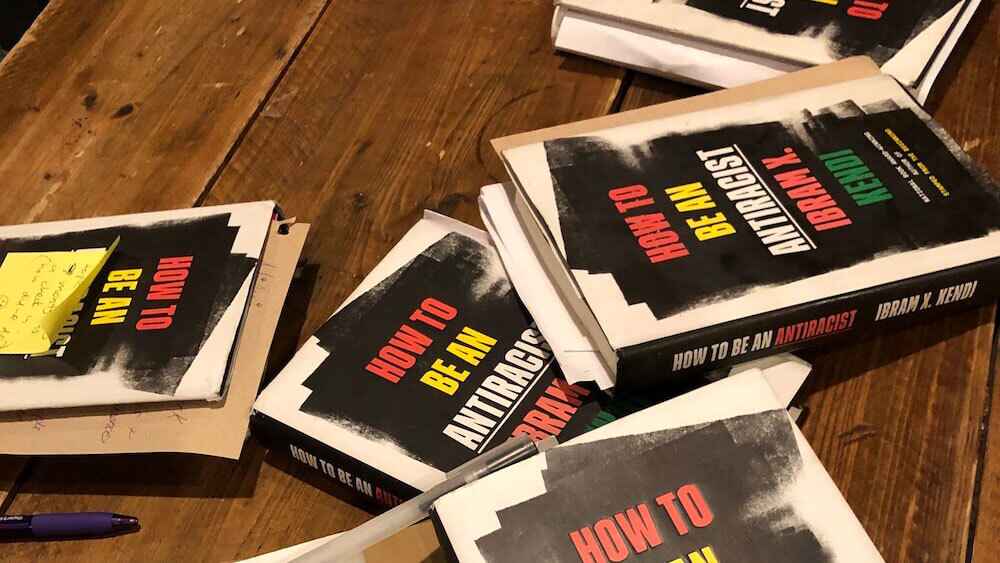
“How to Be an Anti-Racist,” by Ibram X Kendi, has topped Amazon’s list of best-selling books this week.
This week, filled with waves of grief and protest following the homicide of George Floyd in Minneapolis, has been one in which we’ve become “keenly aware that there is more than one pandemic affecting U.S. lives and local economies,” professors Laura Morgan Roberts and Ella F. Washington wrote Monday in an article in the Harvard Business Review. “We are living,” they say, quoting American Association of Psychology President Sandra L. Shullman, “in a racism pandemic.” Cities are burning, Roberts and Washington wrote, “while COVID-19 continues to rage throughout the country, hitting minority communities the hardest.”
This was also the week that the overwhelming majority of books listed as Amazon’s top bestsellers are on the topic of racism and racial justice as millions struggle to come to grips with a crisis that is not new but is now impossible to ignore.
Here are five authors who are frequent speakers on topics including racism, bias, and justice; many more speakers and reading lists also can be found from multiple sources, including speaker bureaus and bookstores. “Addressing bias is not just a personal choice, it is a social agenda, a moral stance,” writes social psychologist Jennifer L. Eberhardt.. “We all have the capacity to make change — within ourselves, in the world, and in our relationship to that world.”
Ibram X. Kendi
Ibram X. Kendi is a professor of history and international relations and the founding director of The Antiracist Research & Policy Center at American University in Washington, D.C. In his best-selling third book, How to Be an AntiRacist, Kendi described “racist” and “anti-racist” not as permanent identities, but as “peelable name tags that are placed and replaced based on what someone is doing or not doing, support or expressing in each moment.” On Twitter: @Dribram
“There’s no in-between safe space, neutrality in this struggle — either we’re producing this racist society or we’re struggling against it.” – @DrIbram in convo w/ @jemelehill at #AspenIdeas, on how we all have a role to play in fighting racism. https://t.co/QoAGt33lyB
— The Aspen Institute (@AspenInstitute) May 29, 2020
Jennifer L. Eberhardt
Jennifer L. Eberhardt is a social psychologist at Stanford University, and the author of Biased: Uncovering the Hidden Prejudice That Shapes What We See, Think, and Do. A recipient of a 2014 MacArthur “genius” grant, Eberhardt is one of the world’s leading experts on implicit racial bias, and works as a consultant to law enforcement agencies, including the Oakland Police Department.
“It doesn’t just come down to ‘Am I a bigot, or am I not? Can I or can I not get training out of this?’ Bias is operating on a kind of cosmic level, connecting factors and conditions that we must individually make an effort to comprehend and control. And it deserves a cosmic response, with everyone on board.” — from Biased
Austin Channing Brown
Austin Channing Brown is a speaker, workshop leader, and the author I’m Still Here: Black Dignity in a World Made for Whiteness. Among other topics, Channing Brown addresses workplaces and how, she told an interviewer in 2018, “it’s dangerous for me to talk about race and be a Black woman in an organization that thinks it’s made it, but it still has work to do.” On Twitter: @austinchanning
I can’t count the number of times I asked for systemic change and got a hug (or tears or a trinket or a pat on the back or a speech or a sermon or some coffee) instead.
— Austin Channing Brown (@austinchanning) June 1, 2020
Bryan Stevenson
Bryan Stevenson is the founder and executive director of the Equal Justice Initiative (EJI), a human rights organization in Montgomery, Alabama, a law professor at New York University, and the author of Just Mercy: A Story of Justice and Redemption. Under Stevenson’s leadership, EJI has won major legal challenges eliminating excessive and unfair sentencing, exonerating innocent death row prisoners, and confronting abuse of the incarcerated and the mentally ill.
“We have a hard time talking about race, and I believe it’s because we are unwilling to commit ourselves to a process of truth and reconciliation. In South Africa, people understood that we couldn’t overcome apartheid without a commitment to truth and reconciliation. In Rwanda, even after the genocide, there was this commitment, but in this country, we haven’t done that.” — From Stevenson’s 2012 TED Talk, “We Need to Talk About Injustice.”
Robin DiAngelo
Robin DiAngelo, an affiliate professor of education at the University of Washington, is the author of the 2018 book, White Fragility: Why It’s So Hard For White People To Talk About Racism. DiAngelo, who has worked as a consultant, educator, and workshop facilitator for more than 20 years on issues of racial and social justice, defines white fragility as a “state in which even a minimum amount of racial stress becomes intolerable, triggering a range of defensive moves.”
“Despite its ubiquity, white superiority is also unnamed and denied by most whites. If we become adults who explicitly oppose racism, as do many, we often organize our identity around a denial of our racially based privileges that reinforce racist disadvantage for others.” — from White Fragility
Barbara Palmer is deputy editor of Convene.
